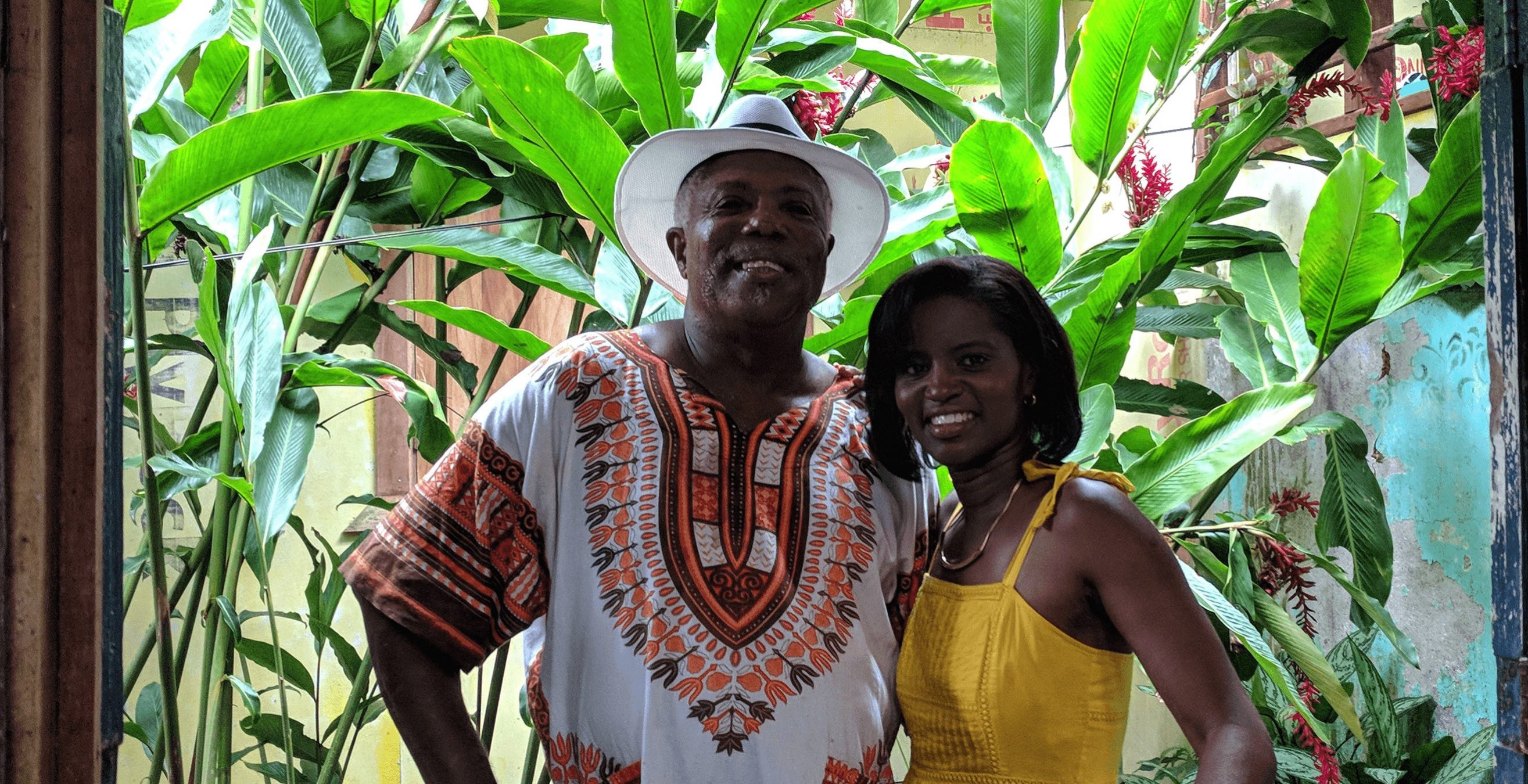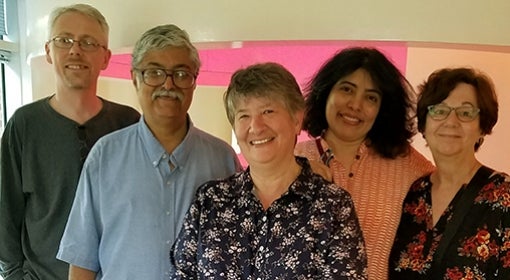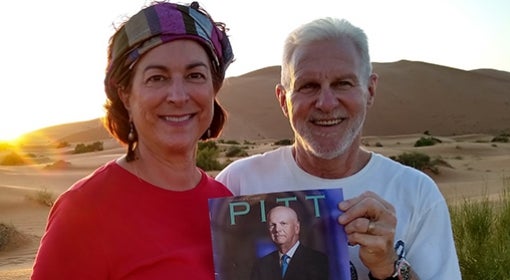In the sun-splashed community center, travel show host and producer Kim Haas moves in rhythm with the conga drums, her blue skirt rippling as she sways. With instruction, she holds her partner’s hand, moves her hips and glides across the floor. Haas is learning Bembé, a West African dance, and something about it feels to her like religion. Each spirited movement represents a connection to the sacred, a symbol of a rite of passage. To learn the dance is to learn a part of African culture, a conveyer of heritage and pride.
But Haas (A&S ’90) isn’t in Africa. It’s 2018, and she’s dancing in the lush coastal city of Limón in the Central American nation of Costa Rica, where she’ll soon be hop-scotching the capital, San José.
In a paradise of white-sand beaches and rainforests, Haas and her camera crew were exploring the long social and cultural legacy of African-descendant peoples in the Caribbean world. She went to Costa Rica to kick off her series “Afro-Latino Travels with Kim Haas” (which first aired last fall on public television and later on public television’s Create TV) and she plans to venture to Cuba, Brazil and other places, once travel is safe again.
Her journeys began many years ago. When Haas was a little girl growing up in Philadelphia, her travel-loving grandmother whisked her off to Acapulco, Mexico. In a hotel lobby, a friendly stranger taught the 7-year-old how to count to 10 in Spanish. The lesson was transcendent for Haas. It inspired an immersion into Romance languages and cultures that ultimately led her to Pitt, where, she says, “the world was waiting.” She majored in Spanish language and literature; absorbed Portuguese and Italian; and studied abroad in Seville, Spain, for a year. She went on to earn a master’s degree in Spanish from LaSalle University before building a career as a media executive.
But while working in marketing for a Spanish-language television station in Philadelphia, she noticed that the richness of the African diaspora in Latin America was largely absent from media. The lack of representation is too often the standard around the globe, she says.
However, she points out, Africa’s influences in Latin America are profound, and can be traced back to the 16th century, when millions of enslaved Africans were first brought on ships to the New World.
Haas’ travel series unearths fascinating, interconnected layers of African heritage. For example, she highlights the language, religions and calypso music that found footing in Costa Rica in the late 1800s when immigrant Black Jamaicans worked with Afro Costa Ricans on the brutal task of building the country’s railroad. In telling those kinds of stories, Haas, whose travel series is supported by a grant from the Ford Foundation, goes directly to the people to spotlight the influential teachers, artists, musicians and others who are often overlooked.
She says there is great power in television to tell stories and shape perceptions, and “the people of African descent deserve to have their stories told.”
Haas is going to do just that—all while dancing through paradise.
Cover image: Selvin Brown (left) and Kim Haas at his restaurant in Limon, Costa Rica.
This article appears in the Spring 2021 edition of Pitt Magazine.





